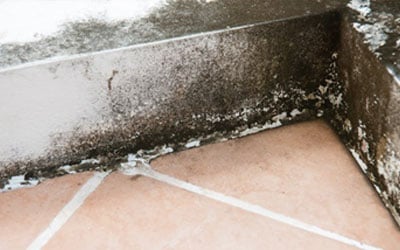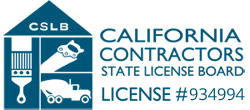
Mold can be a difficult and persistent issue for property owners, both in residential and commercial settings. It is essential to understand the specifics of mold remediation to effectively combat the problem and maintain a healthy and safe environment for occupants. In this informative guide, we will explore the ins and outs of mold remediation for residential and commercial properties, providing key insights into the remediation process, potential health risks associated with mold growth, and preventive techniques for maintaining a mold-free space.
As we delve into the mold remediation process, we will discuss the importance of professional mold remediation services for safely and efficiently addressing mold issues in both residential and commercial properties. We will also examine the potential health hazards posed by mold growth, emphasizing the significance of prompt remediation for protecting the well-being of occupants. Additionally, we will discuss how to minimize the risk of mold recurrence, offering valuable prevention tips and strategies applicable to various property types and settings.
Equipping yourself with knowledge about mold remediation and related topics empowers you to take control of mold situations, ensuring a prompt and effective response to any mold challenges. By joining forces with a trusted mold remediation specialist and implementing preventive measures, you can safeguard your property and its occupants against the potentially harmful effects of mold growth. With the guidance provided in this comprehensive guide, you can cultivate a proactive approach to mold management, securing a healthy and comfortable space that upholds the highest standards of safety and hygiene.
The Mold Remediation Process: Steps for Successful Mitigation
Effectively addressing mold growth requires a meticulous and systematic approach. Understanding the mold remediation process assists property owners in making informed decisions and ensuring successful remediation. Key steps of the process include:
- Inspection and Assessment: The first step in mold remediation involves a thorough inspection to identify the extent of mold growth and the underlying moisture problem causing it. This assessment guides professionals in selecting the most appropriate remediation methods and equipment.
- Containment and Safety Measures: To prevent the spread of mold spores during remediation, professionals will establish containment areas using physical barriers, such as plastic sheeting and negative air pressure. Appropriate safety gear, like masks and gloves, are also worn to protect both the workers and occupants from exposure.
- Mold Removal and Treatment: Utilizing specialized equipment and techniques, such as HEPA vacuums and air scrubbers, mold remediation professionals will remove the visible mold and clean affected surfaces. Antimicrobial treatments may also be applied to discourage mold regrowth.
- Material Removal and Restoration: Mold-infested materials, such as drywall, insulation, and carpet, may need to be removed and replaced. Restoration services will handle these tasks and any necessary structural repairs to return the property to its pre-mold condition.
- Addressing the Moisture Source: Ensuring the original moisture issue is resolved is crucial to preventing mold recurrence. Remediation professionals will identify the necessary repairs or corrections to eliminate excessive moisture and maintain a healthy environment.
Understanding Health Risks Associated with Mold Growth
Mold growth in residential and commercial properties poses several potential health risks, particularly for individuals with preexisting respiratory issues, allergies, or weakened immune systems. Some common health concerns linked to mold exposure include:
- Respiratory Symptoms: Breathing in mold spores can cause or aggravate respiratory problems, such as coughing, wheezing, and shortness of breath. Individuals with asthma or other respiratory conditions may experience more severe reactions.
- Allergic Reactions: Mold can trigger allergic reactions, such as sneezing, nasal congestion, itchy eyes, or skin irritation.
- Immune System Complications: Exposure to certain mold species, like Stachybotrys chartarum (black mold), can lead to more serious health issues for individuals with weakened immune systems, including lung infections or systemic fungal infections.
- Long-Term Effects: Prolonged exposure to elevated levels of mold spores can increase the risk of developing chronic respiratory issues or other health complications.
Comprehensive mold remediation is vital to protect the health and well-being of property occupants and prevent the exacerbation of mold-related health risks.
Preventing Mold Growth in Residential and Commercial Properties
By implementing effective mold prevention techniques, property owners can minimize the risk of mold growth and maintain a healthy environment. Practical strategies include:
- Control Moisture Levels: Maintaining a low indoor humidity level (40-60%) can help discourage mold growth. Utilizing dehumidifiers, exhaust fans, and proper ventilation can assist in regulating indoor humidity.
- Address Leaks and Water Intrusions: Promptly repairing leaks in roofs, walls, or plumbing systems prevents excess moisture accumulation and subsequent mold growth.
- Regular Inspections and Maintenance: Conducting periodic inspections of potential moisture sources, such as basements, crawl spaces, bathrooms, and HVAC systems, can facilitate the early detection of water issues or mold growth.
- Properly Dry and Clean Wet Materials: Quickly drying and cleaning any wet materials, such as textiles or upholstery, can minimize the risk of mold growth. Items that cannot be fully dried or cleaned may need to be discarded.
- Encourage Air Circulation and Filtration: Good air circulation and filtration can help reduce mold spore concentrations. Using HEPA filters in air conditioning systems or installing air purifiers with HEPA filtration can improve indoor air quality.
Collaborating with Mold Remediation Professionals: The Benefits
Enlisting the support of professional mold remediation for both residential and commercial properties offers numerous advantages:
- Expert Knowledge: Mold remediation specialists possess the expertise and training necessary to effectively address various types of mold growth and challenges.
- Advanced Equipment and Techniques: Professionals utilize state-of-the-art equipment and proven remediation methods to ensure the safe, thorough removal and treatment of mold-infested areas.
- Comprehensive Service: From the initial inspection and assessment to containment, mold removal, material restoration, and moisture source correction, professional mold remediation services provide a complete solution for mold challenges.
- Health Protection: Proper mold remediation safeguards property occupants’ health by minimizing exposure to mold spores and addressing the underlying indoor environmental factors contributing to mold growth.
Conclusion: Empowerment through Knowledge and Proactive Measures
Understanding the mold remediation process, potential health risks, and effective prevention techniques empowers property owners in residential and commercial settings to better tackle mold challenges. By collaborating with trusted mold remediation professionals and implementing preventive measures, property owners can create a safe, comfortable, and healthy environment for occupants.
Armed with the knowledge provided in this comprehensive guide, property owners can cultivate a proactive approach to mold management, ensuring swift and efficient responses to mold-related concerns and securing an environment that upholds the highest standards of safety and hygiene.
Restoration Masters is a local business that provides repair and damage restoration services to homes and businesses in the greater Los Angeles area. Our team of experts can handle any damage from water, and can handle mold remediation and the repairs and reconstruction needed to get your property back to its original condition. We pride ourselves on our reliable services, quality work, and certified technicians.





